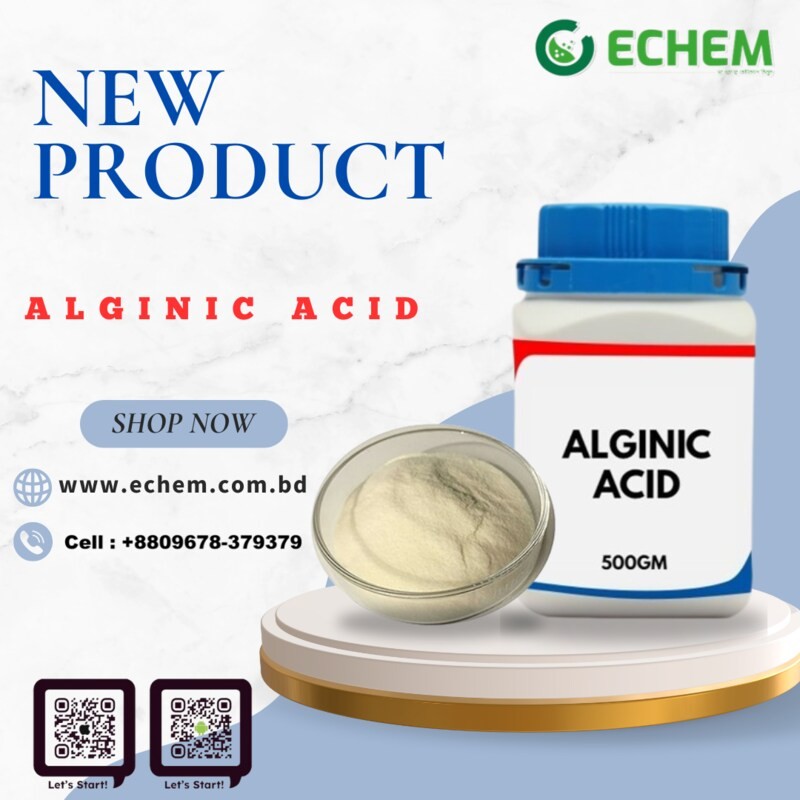Alginic Acid
Alginic acid is a natural
polysaccharide obtained from brown algae (e.g., Laminaria, Macrocystis). It is
composed of β-D-mannuronic acid and α-L-guluronic acid units, arranged in
blocks of these residues. This polymer is known for its ability to absorb water
and swell to form a gel, making it valuable in various industries.
- Pharmaceutical
Applications:
- Antacid
Formulations: Used as a key ingredient in antacid preparations (e.g.,
Gaviscon) to form a viscous raft-like barrier that prevents acid reflux.
- Tablet
Binder and Disintegrant: Facilitates the compression of tablets and
promotes their disintegration upon ingestion.
- Controlled
Drug Delivery: Utilized in hydrogels and beads for sustained or
targeted drug release due to its gel-forming properties.
- Food
Industry:
- Thickening
Agent: Added to soups, sauces, and desserts for improved consistency.
- Stabilizer:
Helps maintain the texture of ice cream, yogurt, and other emulsified
products.
- Dietary
Fiber: Sometimes used as a source of soluble fiber.
- Cosmetic
Industry:
- Included
in formulations like facial masks, creams, and lotions for its hydrating
and texturizing effects.
- Biomedical
Uses:
- Wound
Care: Used in the production of alginate dressings, which are highly
absorbent and promote wound healing by maintaining a moist environment.
- Tissue
Engineering: Applied in scaffolding materials due to its
biocompatibility.
- Industrial
Applications:
- In
printing, textiles, and adhesives, alginic acid acts as a thickening or
binding agent.
Key Properties:
- Biodegradability
and biocompatibility make it suitable for medical and pharmaceutical uses.
- High
water-absorbing capacity allows it to form stable gels.
If you'd like to know more about this chemical or need any analysis report regarding this chemical then contact us: support@echem.com.bd.

Login To Comment